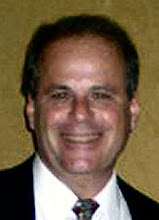One need only employ one's imagination to come up with a good number of possible reasons why a Jewish immigrant might have changed their name on arrival in another country, for example, the United States of America.
First, one must consider whether the change was by choice or by accident. We must also ask if the change was made by the person themselves or by someone else.
If by accident, perhaps a surname (or given name) was read incorrectly and rewritten a different way. Perhaps there was a typo which permanently changed one's name. One can easily misread another's handwriting. For instance, you can see this simply by looking up some family names in the newly online 1940 Federal Census, and see how those who transcribed the names written on the census to their own database (in this case, Ancestry.com) made data input errors. Why couldn't I find my maternal grandparents by using their newly created search engine, when I could find it through Steve Morse's search engine using my grandparents' home address in 1940 and finding the enumeration district? Since one basically must have the correct spelling to a family name to find one's family with Ancestry.com, I could not find my "Ness" family because it was listed on Ancestry.com's database as "Thess". On the census, the capital "N" was handwritten a bit "fancy", and the "N" appeared to the data entry person as a "Th". I could find the name using "Thess" only because I first found the pertinent census page by first finding it using Steve Morse' s search engine, i.e. by knowing my grandparents' address and finding it via the ED. I was fortunate in this way; others won't be so lucky. One can only imagine how a handwritten name might have been misread by these data entry folks and go from there. Perhaps it might be a good exercise to simply examine a number of random census pages and try to imagine how one might misread some of the names.
On the other hand, if an immigrant's surname was changed by choice, what were the possible reasons for such a change? Perhaps the reason might have been an economic one, e.g. they thought that they would be able to make a better living if their surname was this or that. Perhaps a name was changed to make it sound less Jewish and be less open to the prejudices of a potential employer, etc. Years ago being Jewish, even in America, could be a detriment in finding a good job, not to mention finding entrance into certain universities, organizations, etc. Sometimes a man decided to take the surname of his wife if his wife's family was well-known. Sometimes they took the name of the family who sponsored them, who brought them over from the "old country".
Socially, an immigrant often wanted to assimilate more easily into American society, so they either shortened their name or changed it, more or less, to make it more "acceptable". Phonically a foreign-sounding surname was often unappealing and difficult for those who were unfamiliar with such names to pronounce (different alphabet), so the name was "simplified", either by changing the spelling or simply by shortening (or lengthening) the name or changing it entirely.
There are many other possibilities, however remote. Consider my Olshanetski (distant) relatives from Poland. There were a great many children in that clan who were named after a few deceased elders. How many Avraham Olshanetski's can there be? Wouldn't it be confusing if two males had the same name, each one born to sons or daughters of descendants of these deceased elders? So each family varied the spelling of their surname when they arrived in America. Olshanetsky in one instance maintained the same spelling. Other branches of the family became Olshin (also Olshen). Even with double given names, the family decided that their family surname should be shortened, and they tweaked their spelling to distinguish between two (at least) of the same sex, not to mention to distinguish between genealogical branches of the family.
Of course there were many who just didn't like their name, for whatever reason and changed it. Back then, it was easier to "officially" call yourself "Joe Smith" instead of Yosele Shmulewicz.
Here's an exercise for you. Just imagine that you were an immigrant back then, arriving in America at the back end of the nineteenth or the beginning of the twentieth century. Think about what your name "could" have been back in the old country, using that country's alphabet. Consider how you might have been able to change your surname to make it more "acceptable" to others.
No use wondering whether your family had its surname changed at Ellis Island or at the point of embarkation; whether the spelling was altered when a family member decided to apply for a job, or for membership in some social or political organization. Our immigrant ancestors wanted a better life for themselves and their families, and most of them did what they had to do to blend in and "get along". Of course, many chose to keep their birth surname, no matter how it sounded or was spelled, or how it might be perceived by others. Many were proud of their surnames or indifferent to how it was perceived by others.
Subscribe to:
Post Comments (Atom)




Thanks for this article! This was some great information about family name histories. I have often had this same question about this with my name, so thanks for posting this!
ReplyDelete